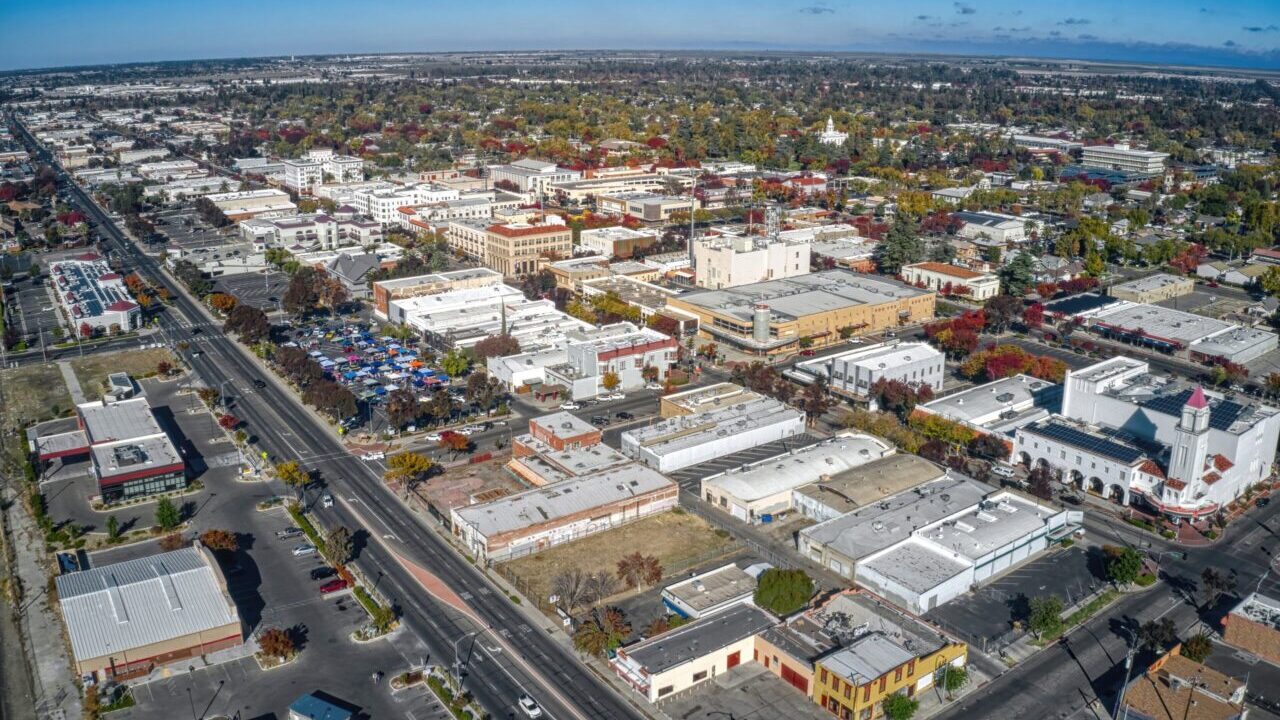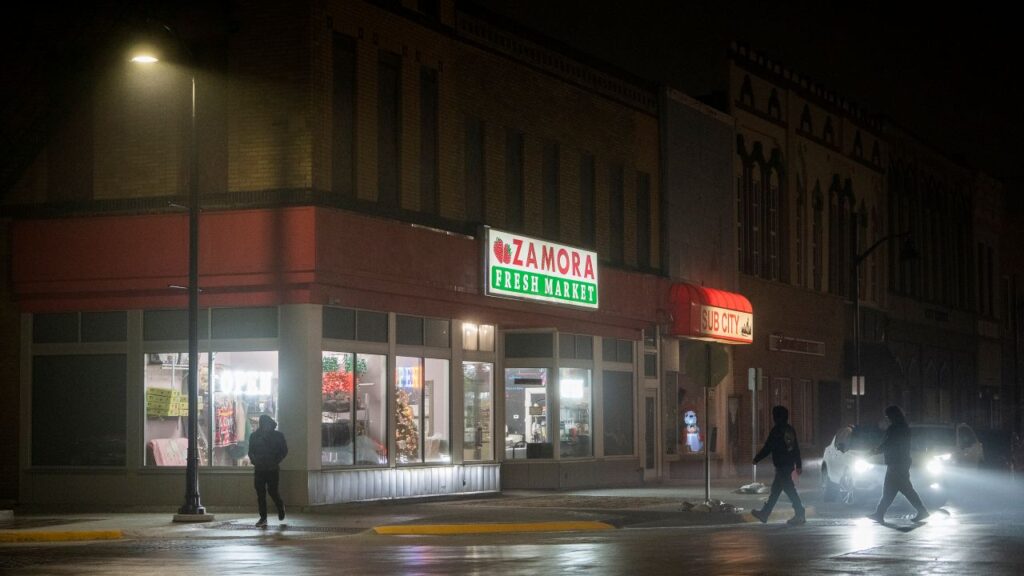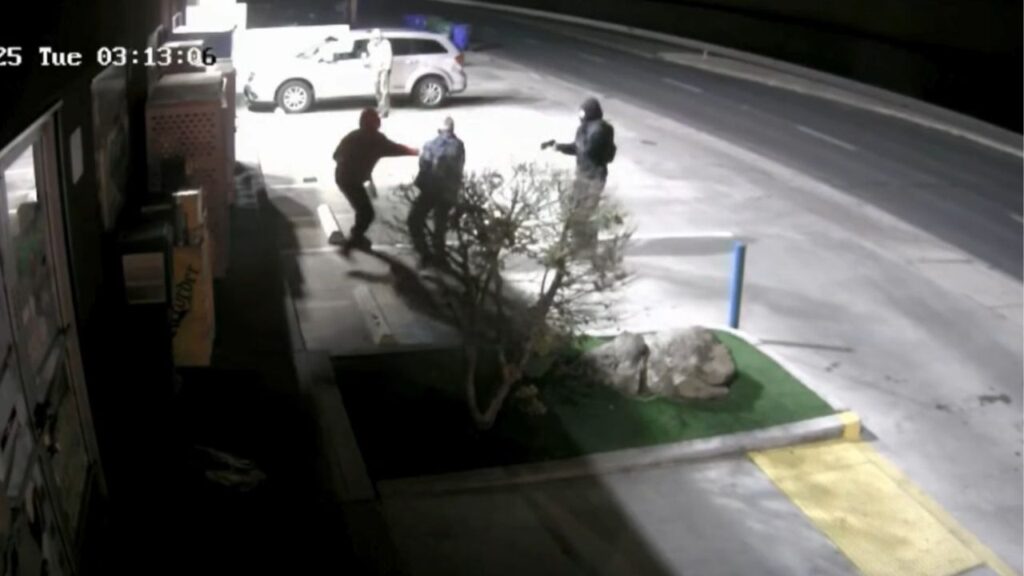
- A proposed north Merced development that’s drawn stiff resistance from homeowners gained forward momentum Monday,
- Can the developer and residents work together to make the Yosemite Avenue project’s mini storage greener and more appealing?
- Developer aims to build 28 single-family homes and a 500-unit mini storage facility near southwest corner of Yosemite and Parsons avenues.
Share
|
Getting your Trinity Audio player ready...
|
A proposed north Merced development that’s drawn stiff resistance from homeowners gained forward momentum Monday, with city leaders hoping the developer and neighbors can find common ground to get it fully across the finish line.
Yosemite 1380 LLC aims to build 28 single-family homes and a 500-unit mini storage facility near the southwest corner of Yosemite and Parsons avenues.
The project would be built on an 8.05-acre section of vacant land just across the street from Shepherd of the Valley Lutheran Church, adjacent to University Surgery Center.
Monday’s discussion of the project at the Merced City Council meeting was the latest among multiple meetings over the past few months. Earlier this year, the City Council kicked it back to the planning commission when the developer appealed the commission’s rejection.
Since then, leaders helped coordinate discussions between the developer and neighbors who complained a mini storage facility would be out of character for Yosemite Avenue – an important thoroughfare to the ever-expanding UC Merced campus.
Council Backs Subdivision With 4-1 Vote
On Monday, the Merced City Council voted 4-1 on a motion made by Councilmember Shane Smith approving the residential subdivision, while putting aside the proposed mini storage for the time being.
On that part of the project, by far the most contentious, leaders hope residents and the developer can reach a greater consensus on how to make the mini storage facility more attractive from a landscaping perspective, with fewer quality-of-life impacts to the neighborhood.
Smith, whose District 4 includes that Yosemite and Parsons avenues area, said he understands residents’ concerns about having a mini storage as a neighbor. He also agreed the city needs more housing.
“I don’t think it’s a stretch to think that three acres of concrete with less-insulated metal walls is going to create a heat problem, particularly for the people who live right next door,” Smith said.
“I think there’s a way to green up the storage facility. I think there’s a way to punch up the landscaping. And I think, maybe, people who are smarter than me can get a more energy-efficient roofing that doesn’t suck up as much heat in the summertime, and alleviates one of the principal concerns that I have heard from the neighborhood, ” he added.
Developer Appears Open to Working With Neighbors
Todd Bender, who represents the developer, told the council he’s amenable to Smith’s suggestions, saying “I think we can make progress in those areas.”
Councilmember Fue Xiong cast the lone dissenting vote, saying he’d like to see more affordable housing, while also expressing opposition to the proposed mini storage. Councilmember Darin DuPont recused himself from the vote, as the developer is a client of his law firm.
Procedurally, the council’s vote addressed four key permit applications with respect to the project. The vote approved a general plan amendment and an ordinance for the housing development’s site utilization plan.
With respect to the mini storage, the council denied the developer’s appeal of the planning commission’s decision – but without prejudice. That means the mini storage part of the project can return to the council, if the developer and neighbors are able to work out its more contentious points.

Important Changes Made to Project
The project before the council Monday had important upgrades, compared to the plan they’d previously seen.
Much of that was due to the feedback offered by residents. For example, the developer decreased the number of residential units from 41 to 28, changing the plan from high-medium to low-medium density.
Gone are the alley-like roads and smaller lots. Plus, adjustments were made to the mix of single story versus two story homes, Bender said.
The hours for the proposed mini storage were changed from 7 a.m. to 10 p.m. to a closing time of 7 p.m.
Even with the council’s vote Monday, the developer still may face an uphill battle getting neighbors to support a mini storage facility.
Some residents expressed concerns the developer would build the mini storage first as an opportunity to generate revenue, but then renege on building the homes. Bender, who himself is a longtime Merced resident, assured the council that wouldn’t happen. Whether his words assuaged neighborhood skeptics, however, remains an open question.
Others said a mini storage is a departure from the vision of having commercial office space and infrastructure to support researchers and professionals in alignment with the atmosphere created by nearby UC Merced.
Tom Clendenin, who lives in Oakmont estates, expressed the sentiments a lot of residents have. He supports the development’s housing component, but staunchly opposes the mini storage.
“If this is approved, believe it or not, there is going to be more mini storages in Merced city limits than there are Starbucks,” Clendenin said.
Carol Dinuzzo, another staunch project opponent, fears the developer will bail on the housing once the mini storage is built “We’ve seen this happen in other communities, and our’s as well,” Dinuzzo said.
“We could end up exactly with what we don’t want – a giant storage facility on a property that was meant to support future commercial office growth, and a vacant, half-prepped piece of land sitting next to it for years.”
About the Author
Victor Patton is managing editor of The Central Valley Journalism Collaborative.




















